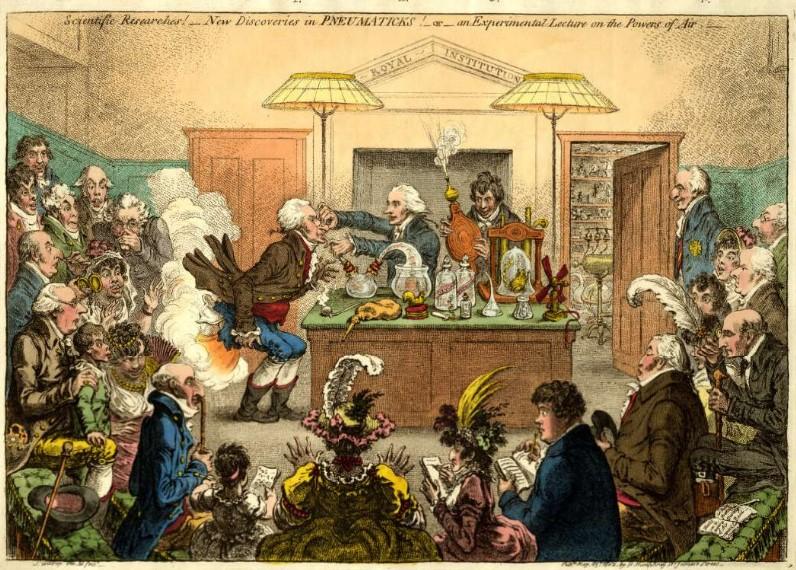Quote
There is nothing of which we are more communicative than of a good jest...
Links to the Encyclopedia:
Keywords
It is often a great occasion of pleasure, and enlivens our conversation exceedingly, when it is conducted by good-nature. It spreads a pleasantry of temper over multitudes at once; and one merry easy mind may by this means diffuse a like disposition over all who are in company. There is nothing of which we are more communicative than of a good jest: and many a man, who is incapable of obliging us otherwise, can oblige us by his mirth, and really insinuate himself into our kind affections, and good wishes.
But this is not all the use of Laughter. It is well known, that our passions of every kind lead us into wild enthusiastic apprehensions of their several objects. When any object seems great in comparison of ourselves, our minds are apt to run into a perfect veneration: when an object appears formidable, a weak mind will run into a panic, an unreasonable, impotent horror. Now in both these cases, by our sense of the ridiculous, we are made capable of relief from any pleasant, ingenious well-wisher, by more effectual means, than the most solemn, sedate reasoning. Nothing is so properly applied to the false grandeur, either of good or evil, as ridicule: nothing will sooner prevent our excessive admiration of mixed grandeur, or hinder our being led by that, which is, perhaps, really great in such an object, to imitate also and approve what is really mean.
Sources
Francis Hutcheson, Reflections Upon Laughter. Glasgow: printed by R. Urie for D. Baxter, 1750, p. 32-33.
